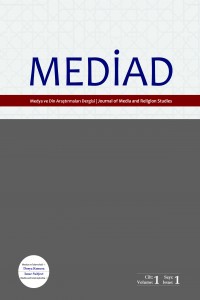Öz
Following Donald Trump’s retweeting of Britain First’s anti-Muslim videos, this article shows how the far-right have previously used Twitter as a platform for anti-Muslim propaganda but also to boost the profile and political success of Donald Trump and his political allies.
After the Brussels terrorist attack of 2016, some mainstream media outlets reported on a racist hashtag #StopIslam that had been ‘hijacked’ by anti-racists to counter the negative publicity being peddled about Muslims in the aftermath of the attack. This inspired us to seek funding from the British Academy and the Leverhulme Trust to investigate the dynamics of this campaign. What we found was surprising. We expected to find a preponderance of European far right voices in the debate but we were wrong!
Anahtar Kelimeler
Kaynakça
- Poole, E (2002) Reporting Islam: Media Representations of British Muslims. (I.B.Tauris)
Öz
Following Donald Trump’s retweeting of Britain First’s anti-Muslim videos, this article shows how the far-right have previously used Twitter as a platform for anti-Muslim propaganda but also to boost the profile and political success of Donald Trump and his political allies.
After the Brussels terrorist attack of 2016, some mainstream media outlets reported on a racist hashtag #StopIslam that had been ‘hijacked’ by anti-racists to counter the negative publicity being peddled about Muslims in the aftermath of the attack. This inspired us to seek funding from the British Academy and the Leverhulme Trust to investigate the dynamics of this campaign. What we found was surprising. We expected to find a preponderance of European far right voices in the debate but we were wrong!
Anahtar Kelimeler
Kaynakça
- Poole, E (2002) Reporting Islam: Media Representations of British Muslims. (I.B.Tauris)
Ayrıntılar
| Birincil Dil | İngilizce |
|---|---|
| Bölüm | Teknik Not |
| Yazarlar | |
| Yayımlanma Tarihi | 28 Haziran 2018 |
| Yayımlandığı Sayı | Yıl 2018 Cilt: 1 Sayı: 1 |
 MEDYA VE DİN ARAŞTIRMALARI DERGİSİ (MEDİAD) - JOURNAL OF MEDIA AND RELIGION STUDIES
MEDYA VE DİN ARAŞTIRMALARI DERGİSİ (MEDİAD) - JOURNAL OF MEDIA AND RELIGION STUDIES
This journal is licensed under a Creative Commons Attribution 4.0 International License.


